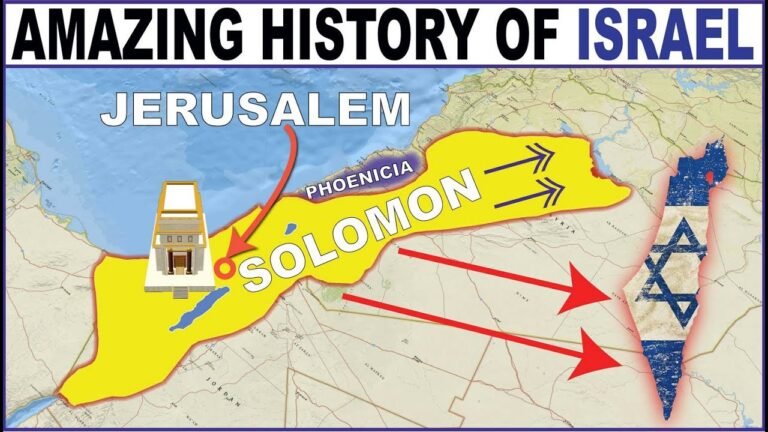Understanding the Torah in the Bible
The Torah, a foundational text in the Bible, serves as a cornerstone of Jewish faith and tradition, encompassing the first five books: Genesis, Exodus, Leviticus, Numbers, and Deuteronomy. Often referred to as the Teaching or Law, the Torah outlines not only the creation of the world and the origins of the Israelite people but also provides essential guidelines for ethical living and communal responsibility. Understanding what the Torah represents is imprescindible for grasping the cultural and spiritual heritage that has shaped millions of lives throughout history.
- The Torah is the central reference of the religious Judaic tradition, consisting of the first five books of the Hebrew Bible: Genesis, Exodus, Leviticus, Numbers, and Deuteronomy.
- It serves as a foundational text for Jewish law, ethics, and teachings, outlining covenants between God and the Israelites.
- The Torah is often referred to as the Pentateuch, which means “five scrolls,” reflecting its division into five distinct sections.
- In addition to its religious significance, the Torah has historical and cultural importance, influencing various aspects of Western civilization and legal systems.
- The Torah is traditionally read in synagogues during worship services, with specific portions assigned for each week, fostering communal engagement and study.
What are Jesus’ teachings regarding the Torah?
Jesus emphasized the enduring value of the Torah, asserting that he did not come to abolish it but to fulfill its purpose. His teachings during the Sermon on the Mount aimed to illuminate the true essence and application of the Torah, encouraging a deeper understanding rather than dismissal. By doing so, he reinforced the importance of the Torah and the Prophets, highlighting their relevance in guiding moral and spiritual conduct.
Is the Torah identical to the Old Testament?
The Torah, often recognized as the foundation of Jewish scripture, comprises the first five books of the Bible: Genesis, Exodus, Leviticus, Numbers, and Deuteronomy. Known as the Pentateuch, it outlines the laws, teachings, and narratives central to Jewish faith and identity.
In contrast, the Old Testament, which is commonly associated with Christian traditions, encompasses a broader collection of texts. It includes the Torah along with additional historical, poetic, and prophetic writings, totaling 24 books in the Hebrew Bible. While the Torah serves as a pivotal component of the Old Testament, the two are not synonymous; the Old Testament represents a larger narrative that incorporates various religious and cultural contexts.
What is the central message of the Torah?
The Torah serves as a profound guide for humanity, inviting individuals to connect with God through a lens of awe, love, and joy. It embodies divine wisdom and reflects God’s desire to manifest His kingdom on earth, mirroring the heavenly realm. Judah Halevi emphasized the intrinsic relationship between Israel and the Torah, suggesting that while Israel was destined to uphold these sacred teachings, the very existence of the Torah is intertwined with the people of Israel, highlighting a symbiotic bond that shapes their spiritual journey.
Discovering the Depths of Sacred Texts
Sacred texts serve as windows into the spiritual and cultural landscapes of civilizations, offering profound insights into humanity’s quest for meaning. Each scripture, whether it be the Bible, the Quran, or the Bhagavad Gita, encapsulates timeless wisdom that addresses the fundamental questions of existence, morality, and the divine. By exploring these texts, we uncover layers of interpretation that resonate with both historical contexts and contemporary issues, illuminating paths to understanding our shared values and beliefs.
Delving into the depths of these sacred writings invites us to reflect on our personal journeys and the interconnectedness of all faiths. As we engage with their narratives and teachings, we foster a dialogue that transcends boundaries, encouraging empathy and respect among diverse communities. This exploration not only enriches our spiritual lives but also cultivates a deeper appreciation for the rich tapestry of human experience, reminding us that, despite our differences, we are united in the pursuit of truth and purpose.
Bridging Faith and Tradition
In a world that often feels divided by differences, the intertwining of faith and tradition serves as a powerful reminder of our shared humanity. By honoring age-old customs while embracing spiritual beliefs, communities create a vibrant tapestry that enriches cultural identity. Festivals, rituals, and communal gatherings become sacred spaces where individuals connect, fostering understanding and respect across diverse backgrounds. This harmonious blend not only preserves heritage but also inspires future generations to cherish their roots, ensuring that the essence of faith and tradition continues to thrive in an ever-evolving world.
Insights into Divine Wisdom
In a world teeming with distractions and noise, the quest for divine wisdom becomes a guiding light, illuminating the path toward deeper understanding and purpose. This wisdom transcends mere knowledge; it embodies the principles of compassion, integrity, and humility. By tapping into this profound insight, individuals can navigate life’s challenges with grace and resilience, fostering a sense of inner peace that radiates outward to influence their communities.
The pursuit of divine wisdom encourages introspection and self-awareness. It invites individuals to explore their beliefs, question their motivations, and align their actions with their values. This transformative journey not only enriches personal growth but also cultivates a sense of connection to something greater than oneself. In embracing this wisdom, one discovers the power of empathy and kindness, which serve as foundational elements in building harmonious relationships and nurturing a more compassionate society.
Ultimately, insights into divine wisdom offer a roadmap for living authentically and purposefully. They remind us that every choice we make has the potential to create ripples of change, both in our lives and in the world around us. By prioritizing these insights, we can foster a culture of understanding, encouraging others to join us in the pursuit of a more enlightened and loving existence.
The Torah’s Role in Biblical Narrative
The Torah serves as the foundational text of the Hebrew Bible, establishing the framework for many of the narratives that unfold throughout the scriptures. Its five books—Genesis, Exodus, Leviticus, Numbers, and Deuteronomy—introduce key themes, characters, and events that shape the biblical story. Through the lens of the Torah, readers gain insight into the creation of the world, the covenant between God and the Israelites, and the journey of a people striving for identity and purpose.
In the context of biblical narrative, the Torah not only recounts historical events but also imparts moral and ethical lessons. Each story within its pages is imbued with deeper significance, offering guidance on how to live a righteous life and maintain a harmonious relationship with God and fellow human beings. For instance, the trials of the patriarchs and matriarchs illustrate the complexities of faith, while the laws given at Sinai provide a blueprint for community life and spiritual practice.
Moreover, the Torah’s influence extends beyond its immediate text, permeating other biblical writings and shaping the theological discussions that follow. Its teachings resonate in the prophetic literature and wisdom books, reflecting a continuous dialogue about faith, justice, and holiness. As such, the Torah is not merely a historical account; it is a living document that invites readers to engage with its narratives, fostering a deeper understanding of both the divine and the human experience.
A Journey Through Ancient Teachings
Throughout history, ancient teachings have served as guiding lights, illuminating paths to wisdom and understanding. Cultures around the world have harnessed the power of philosophy, spirituality, and practical knowledge to navigate life’s complexities. From the profound insights of Confucius to the mystical verses of Rumi, these teachings invite us to reflect on our existence and our relationship with the universe.
As we delve into these timeless lessons, we discover that they transcend geographic boundaries and resonate across generations. They encourage us to seek balance within ourselves, cultivate compassion for others, and embrace the interconnectedness of all life. Each tradition offers unique perspectives, yet they converge on universal themes of love, respect, and the pursuit of truth, reminding us of our shared humanity.
Embarking on a journey through these ancient teachings is not merely an academic exploration; it is an invitation to transform our lives. By integrating their wisdom into our daily practices, we can foster personal growth and inspire positive change in our communities. Ultimately, these teachings empower us to live with intention, creating a legacy of knowledge and harmony for future generations.
The Torah stands as a foundational text in the Bible, offering profound insights into law, ethics, and spiritual guidance. Its narratives and teachings have shaped not only Jewish faith but also the broader landscape of Western thought. Understanding the Torah enriches our comprehension of religious traditions and underscores its enduring relevance in today’s world. Embracing its wisdom invites deeper reflection on our values and beliefs, making the exploration of the Torah a journey worth undertaking for anyone seeking meaning and connection in their spiritual life.







